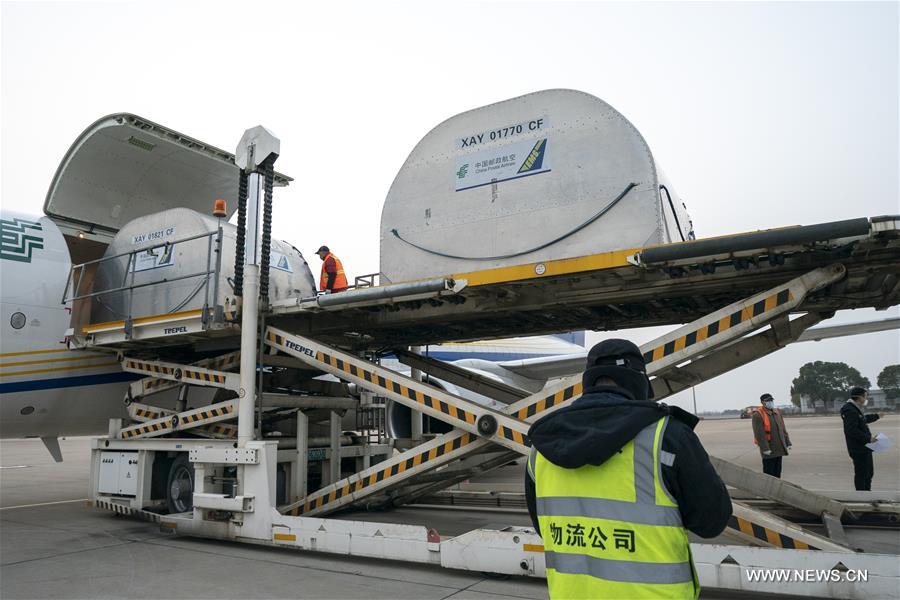SOEs give corporate edge to virus combat


Centrally-administered State-owned enterprises have played a stellar role in preventing the spread of the novel coronavirus and controlling the COVID-19 epidemic, said China's top State assets regulator.
Central SOEs have leveraged their business expertise in various areas to source a variety of goods from overseas, in order to deploy such materials and their manpower in the virus combat, said the State-owned Assets Supervision and Administration Commission, or SASAC, which is part of the State Council, China's Cabinet.
Central SOEs such as China Post Group Corp and State Grid Corp of China have offered free services, including air cargo transportation of qualified epidemic control materials, power charging for epidemic prevention vehicles, and disinfection of medical aid, the SASAC said.
SASAC Chairman Hao Peng urged central SOEs in energy, telecommunications and transportation industries to efficiently organize production, ensure stable supply and timely services, and build basic infrastructure for epidemic prevention and control.
Central SOEs such as China Southern Airlines, China Railway Rolling Stock Corp, China COSCO Shipping Group and China Minmetals Corp have all made sustained efforts to secure the necessary resources from overseas. Using their global market networks, they were able to source and transport a large number of protective clothing fabric, face masks, thimerosal and medical equipment from Germany, the Netherlands, Malaysia, Japan and South Korea.
Among the SOEs, China Post Group Corp had organized nearly 3,000 truck transportation services and 85 cargo flight services to ship 34,000 metric tons of living materials, goods and equipment for epidemic prevention and control to Hubei province by March 13.
Major State-owned energy providers have also stepped up efforts to ensure supplies for the epidemic prevention and control. State Grid Corp of China has activated first-level emergency response among its subsidiaries across 17 provinces. Some 270,000 employees are now involved in ensuring uninterrupted supply of stable electricity. Over 1,100 of them are from Wuhan, Hubei province, the former epicenter of the coronavirus outbreak.
To ensure adequate supplies, State Grid initiated 10 measures, including a 110 million yuan ($15.6 million) donation, continuous electricity supply to the 17,000 Wuhan households in spite of unpaid utility bills, and 57 free charging stations in the city. It has also vowed to reduce power costs by as much as 48.9 billion yuan for industrial and commercial enterprises in an effort to ensure a steady energy supply for fighting the novel coronavirus.
In addition, the company has restored and started its ultra high-voltage direct current transmission lines traversing Qinghai, Henan and Jiangxi provinces. Besides, to lower the possibility of infection, State Grid encouraged the public to transact business online through its 24/7 mobile app, including purchase of electricity online.
"Currently, business functions on the app run smoothly across the entire network, and we prioritize the needs of customers in Hubei province, especially Wuhan. With efforts on both the front-lines and behind, we will resolutely win the battle," said Wang Yanfang, spokesperson of State Grid.
State Power Investment Corp, the world's largest investor in solar power plants, launched emergency plans to guarantee power supply to Hubei province. At the time of writing, the 356-megawatt photovoltaic operations across Hubei are stable. The company's thermal power subsidiary in Huanggang, Hubei province, is in dual-machine operation, generating an estimated over 5 gigawatt-hours of power per day.
"We are promoting telecommuting, such as video conferencing, so that employees can work from home and thus minimize or even eliminate chances of getting infected," said Qian Zhimin, chairman of SPIC.




































